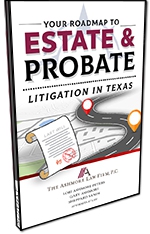Without the proper estate planning, the process of a minor receiving an inheritance can get complicated and costly. However, including certain language in your Last Will and Testament can help avoid the problems that go along with a minor inheriting from an estate.
Many of us have what we consider a “Simple Will” or an “I Love You Will.” Let’s discuss exactly what that means.
When you die, you want all of your assets to go to your surviving spouse, however, if they die before you, you want your assets to go to your children, per stirpes. You may be thinking to yourself that sounds simple enough, but what does “per stirpes” mean.? In fact, many of you probably have this exact wording in your Will but are not completely sure what it even means. Per Stirpes
A distribution under a Will or Trust that is “per stirpes” means the descendants of any deceased child will inherit the share that the child would have taken if the child had survived.
Harry and Sue’s Story
Harry and Sue have been married for 40 years. They have 3 adult children, Amy, Mary, and Jane. Amy has 2 children, Mary has 1 child, and Jane has 3 children. Their father’s Will states that if he dies, his assets go to his wife, Sue if she survives him. If Sue does not survive him, his assets then go to his children, if they survive him, in equal shares. That means Amy, Mary, and Jane each get one-third (1/3) of their Father’s assets.
Harry’s Will goes on to say, “if a child of mine shall predecease me, their share shall pass to their children, per stirpes.” (This means if Amy dies before her father, her 2 children will split her 1/3 share, which means they will each receive 1/6 of the assets, with the remaining 1/3 going to Mary and 1/3 going to Jane.)This may sound pretty straightforward, but there are MORE considerations that need to be made.
What happens if Amy’s children are minors and they just inherited 1/6 of Harry’s assets? In the State of Texas, anyone under the age of 18 cannot legally own any real property or be entitled to receive any assets. So now what happens to the assets Amy’s children just inherited?
This is where things can get a bit complicated. For the purposes of this article, we will discuss 4 ways in which a minor can receive an inheritance of real property or assets.
Court Registry
If the amount the minor child will be inheriting is under $100,000, the entire amount can be placed into the court registry, which is basically an account held by the county clerk. The money is not invested, nor does it receive much interest. On the 18th birthday of the child, they can go to the county clerk’s office with their driver’s license and request their money. The disadvantage to this option is the money cannot be used freely by the minor. If, before the age of 18, the minor is in need of money, a petition must be filed with a Court and a Judge must approve the release of funds for the benefit of the minor. This option does not require any special provisions in the Will.
Uniform Transfers to Minors Act (UTMA)
The inheritance can be placed in a special account under the Uniform Transfers to Minors Act, whereby a custodian is designated to hold, invest and manage the assets for the benefit of the minor. The advantage to utilizing this option is a Court, nor Judge has any control over the account, or the distributions made on behalf of the beneficiary. The assets will be distributed to the beneficiary at the age of 18 or 25. If this option is chosen, the person who created the Will, also known as the Testator, must provide the age and the fact that any asset left under this provision must be placed in an account under the Uniform Transfers to Minors Act. This option requires a couple of sentences in the Will that allows for the distribution to the UTMA account.
Contingent Trust
The inheritance can be placed in a Contingent Trust that was set up under the Will, wherein the person who created the Will, the Testator, included provisions in their Will that stated if anyone under the age of 25 (or the Testator can choose any age), is entitled to receive any distribution, their share shall be placed in a Trust. The Will appoints the Trustee and provides for the powers given to the Trustee. At the age of 25, or whichever age is chosen by the Testator, the Trustee is to distribute all assets in the Trust to the Beneficiary, and the Trust is terminated. By utilizing this provision, the Trustee makes all decisions, and it is completely outside of any control of a Court or a Judge. This option requires many provisions in the Will that creates the Contingent Trust, appoints the Trustee and lists the powers of the Trustee.
Appointing a Guardian
The surviving parent can apply to be the court appointed guardian of “the estate of the minor child” to receive the real property or assets. A parent becoming the court appointed guardian is the last resort in a situation like this as it can be very costly and the surviving parent CANNOT spend any of the assets on the minor child without first receiving authority from a Judge. This means not one penny can be spent on behalf of the minor without first going to court and pleading your case to the Judge why you, as the guardian of the estate, should be allowed to spend the money on behalf of the minor. In addition to this process, every year you must account to the court every dollar that was spent from the guardianship account. This process requires an attorney to draft all of the documents, and at which time significant fees are incurred. This process must be followed until the child turns 18 years of age. This option does not require any special provisions in the Will.
It is important to keep in mind there is NO right or wrong answer in this situation. With the example given in this article, it is only a remote possibility that a minor will receive any part of Harry’s inheritance. However, even though it is a remote possibility, it is still a possibility. One must consider the size of the estate to determine which of the four options above should be utilized.
As you begin thinking about your Will, please consider the above possibilities, and we recommend you consult with a qualified estate planning attorney to discuss your options.
Do You Need To Speak With An Experienced Estate Planning Lawyer In The Dallas Area?
If you need to speak to an experienced estate planning attorney please contact us online or call our Dallas office directly at 214.559.7202. We help clients throughout the Dallas area with all of their estate planning needs and look forward to helping you.



